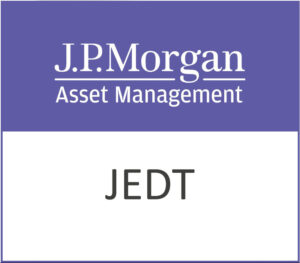Fidelity Emerging Markets Limited (LON:FEML) is the topic of conversation when Kepler Partners’ Investment Trust Research Analyst Josef Licsauer caught up with DirectorsTalk for an exclusive interview.
Q1: Josef, could you just tell us what FEML’s investment strategy is and how it differentiates from other emerging market trusts?
A1: Nick Price and Chris Tennant are the current managers of Fidelity Emerging Markets and they’re both very seasoned emerging market investors.
What they aim to do is employ a very flexible strategy, go anywhere mandate within emerging markets and by that, they seek out both on and off benchmark opportunities across each sector, the market cap, the geography, including those frontier markets.
On top of that, they can also use derivatives and that most importantly is to take up short positions in companies within their remit. I think this is where we see the trust standing out most amongst its peers. It’s through its flexibility to take out both short and long positions.
So, to quickly cover the heart of the proposition, which is the long book as they refer to it, they focus their efforts there on identifying those high quality companies. By high quality, in this case, they want businesses offering consistent returns and attractive valuations. They want to own those businesses that are quite dominant in their respective industries, but also those that have strong franchises that they feel will help them capitalise on those structural trends that they see in developing markets over time.
On the short book, this includes companies that are the complete mirror opposite to those that they’re looking for in the long book. So, they actively target those that have significant downside potential driven by stress and poor balance sheets. They want very weak management teams, they want structural weaknesses within industries or business models. That’s their bag on the short side. While active positions in the short book cannot be disclosed, we can certainly talk to some of the closed positions they’ve had.
One of the most recent examples that we have available is a company called Microvast, which is a US-listed battery company with operations in China. The managers here were drawn to the fact that the company’s battery technology capabilities weren’t strong and they observed that its balance sheet was far too stressed, really poorly structured and had a lot of debt on it. That inability to refinance or pay off the debt ultimately led to a drop in its share price, which is validating the manager’s strategy on the short book.
I think this is particularly valuable in the current environment we’re in with rates being as high as they are, albeit coming down in certain parts of the market, it will lead to higher debt costs and that will put pressure on those weak companies.
So, being able to exploit those vulnerabilities gives them all that chance to generate differentiated sources of alpha, without having to rely too much on market direction for returns, ultimately.
Q2: Where do they view the current opportunities in emerging markets? Are macro and geopolitical factors influencing the emerging market opportunity set?
A2: Yes, it’s a good one, because both the managers are cognisant of the factors you just mentioned there, and I think would naturally agree they have influenced opportunity sets.
For them, most importantly, it’s looking at stock selection from the bottom up. So, those individual company potentials, rather than a top down allocation to different countries or regions.
Either way, they see opportunities at the moment across emerging markets influenced by those factors we’ve just noted, but also the structural trends they’re seeing and the historically low valuations in the market.
One of the areas I’ll draw you to is Poland. The team value on the ground insight, and they recently went to Poland, it was in April this year, to meet an array of companies, both existing holdings and new opportunities. They noted the country’s economy is really, really starting to grow, it’s showing signs of life, and it’s only making up 1% or so of the emerging markets index.
That to them, opens up a realm of opportunities, because there is less coverage there, than perhaps more of the developed markets. So, for active investors, which both Nick and Chris pride themselves on being, there’s a bit of an informational edge.
One of the businesses they’ve been able to identify, which has very few analysts on the sell side covering it, is AutoPartner, and AutoPartner is distributing auto parts across Poland. It’s been growing steadily over time, building that market position and it’s now starting to look forward to expanding into Western Europe. So, there’s a bit of an opportunity there.
Another couple more areas of interest, which the team were drawing on the last time we spoke, is the opportunities they’re finding some smaller frontier markets like Vietnam. In Vietnam, they’re seeing a really, really fast growing economy that not only benefits from that highly skilled, low cost labour, but is also starting to see an influx of interest, given the diversification away from China.
A lot of people are looking to move away from China, given the issues that we’ve seen of late, whether that be geopolitical or just internal issues like the property market. That is now leading to a bit of a swell in what the managers in the team are identifying as the near-shoring or the friendshoring trends.
So, on the friend-shoring trends, this is where Vietnam or the likes of Indonesia comes in. They could be well placed as beneficiaries for companies who still want to retain their Central Asian presence without relying on China.
On the near-shoring trend, you’ve got countries like Mexico, which the managers are finding opportunities which could be set to benefit from the US companies looking at drawing back their manufacturing capabilities close to home. Again, not really relying solely on China.
One last thing, the views the team have on interest rates, that was a fairly interesting one for me, so they have a really diverse allocation to financials in the portfolio. Naturally, some benefit from higher interest rates, but they anticipate rates coming down from peaks, particularly in regions like Brazil, fairly quickly. So alongside those rate beneficiaries, they’ve made sure to invest in companies that aren’t really rate sensitive, like those in the fintech space, but also those that are actually going to benefit from rates coming down.
We’ve got a couple of positions, a bank in Hungary, for example, which deals with liabilities and an exchange in Brazil.
Q3: Could you talk us through some examples of strong recent stock selections from the managers?
A3: So, the last 12 months have been a really strong period and that comes despite the headwinds that they’ve seen posed by Chinese equities over 2023.
There have been a number of stocks that have driven performance, I’ll probably draw you to the Kazakhstan’s Kaspi. Kazakhstan is a bit of a frontier market, relatively undercover, but the managers have drawn on that experience and the large resources they’ve got available at Fidelity to go to Kazakhstan to find those kind of opportunities.
Kaspi, notably, is the opportunity set for them there and it’s a business that is growing very, very big in its respective industry and offers e-commerce payments and fintech services.
The managers noticed its dominance growing and its user base growing, but also its plans to expand other parts of the business and more recently it’s done so in this e-grocery business. All of those factors combined has led to it being one of the top performers over the last 12 months.
Away from the long book, looking at the short book now, the managers have shown really, really strong stock selection, particularly over the last 12 months, and that’s come from two key drivers.
Again, we can’t disclose the active positions, but the managers categorise them as a notable contribution from an Asian utility company and an Asian battery maker. Now, again, they’ve drawn on the resources here to identify specific weaknesses in each business and on the former, so the utility company, they noted that it was trying to pivot into an unrelated market that it didn’t really have great deal of experience in. So again, an example of poor management. The Asian battery maker, so the latter example, was suffering from a bit of an oversupply issue so they’ve identified a structural weakness in the industry.
Both of those companies’ share prices have been hit pretty hard so again, it validates not only the effectiveness of being able to use short positions, but also their stock selection strength within it.
Q4: What opportunity does Fidelity Emerging Markets’ current discount present to investors?
A4: I think if we look at FEML’s discount over the last five years, it paints quite an interesting picture.
From the late 2021 to 2023, it was trading fairly consistently in mid-teens. And it peaked in March 2022, around 18/18.5%, and based on the data that we have, that was quite an unusually high level relative to its history, at least. It can be explained from the issues that it’s had over 2022, from the fallout of the invasion of Ukraine by Russia, and also reflecting the trend of the general widening of discounts in the sector.
Since then, the discount has narrowed materially, and it’s now back down towards its five-year average, and yet we think, despite it coming down towards its five-year average, it still offers that potentially attractive entry point for investors, particularly those long-term investors looking for, and the key word here is, differentiated exposure to emerging markets.
The trust is backed by two very experienced managers, with one of the largest team of analysts in the EM space. It also benefits from that ability to use both short and long positions, which again, as we mentioned earlier, is helping reduce that reliance on market direction driving returns. What we haven’t mentioned it’s also supported by a very, very active Board. The Board last year announced a pretty robust share buyback programme, and so far, this year completed a tender offer. So again, they’re showcasing their commitment to narrow that discount down over time in a sustainable way.
All in all, we think that FEML presents a highly differentiated proposition for investors, and if its performance continues as is, we think that it’s trading at a potentially attractive discount level.







































